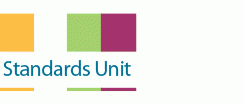Assessment for Learning: Mathematics
A variety of mathematics resources useful when assessing the progress of students in the mathematis classroom.
Assessment for Learning: Mathematics
As part of the National Strategies approach to Assessment for Learning (AfL) these units were developed to support the whole school approach implementation in mathematics departments. Each unit was intended to be used as a departmental development tool, starting with a self review section, a number of classroom tasks and a subsequent departmental evaluation.
The mathematics specific units from the series are:
Unit 3: Developing objective-led lessons in mathematics
Unit 4.1: Developing oral feedback in mathematics
Unit 4.2: Developing written feedback in mathematics
Unit 5: Developing peer and self assessment in mathematics
Unit 6.1: Developing curricular target setting in mathematics
Unit 6.2: Securing progression in mathematics
Unit 7: Developing questioning and dialogue in mathematics.
Working Together: Teaching Assistants and Assessment for Learning
The materials in this National Strategies resource help teaching assistants to develop their role in supporting assessment for learning (AfL) in the classroom by promoting and embedding good practice in partnership with teachers.
Throughout the resource, teaching assistants reflect on and evaluate their role and identify areas for professional development. They look at existing practice in assessment for learning in their school, reviewing existing practice and reflecting on learning outcomes. The emphasis is on looking at how teaching assistants can improve their knowledge and practice in supporting AfL.
This study guide contains:
• quotes and suggestions from teaching assistants who have trialled some of the suggested ideas
• ‘reflections’, to help teaching assistants to reflect on an idea or on their own practice
• practical tips
• tasks to help consider advice or try out strategies in the classroom
• some suggestions for next steps and further reading.
Thinking About Assessment
Improving Learning in Mathematics videos explore a range of opportunities for assessment of learning and reflect on how you might incorporate these strategies.
Sections include:
•Listening to learners
•Assessment through activities
•Involving learners in assessment#
•'Thinking about questioning' to explore further how questioning can help assessment for learning;
•'Thinking about discussion' to explore further the assessment opportunities that mathematical discussion offers.
Using Assessment to Raise Achievement in Mathematics
This guidance booklet, from the National Strategies collection, was inspired by the documents Inside the black box (Black & Wiliam, 1998) and Assessment for Learning, beyond the black box (Assessment Reform Group, 1999) and outlines how assessment for learning can raise achievement in school. Evidence suggests that using good strategies for formative assessment could lead to significant improvements in the performance of pupils. This guidance considers aspects of this and illustrates how some schools have used them.
This guidance aims to provide information about using the following techniques:
• involving pupils in assessing their own performance;
• setting learning goals for pupils and sharing these with them;
• using effective questioning techniques to assess and further pupils’ learning;
• using marking and feedback strategies to inform pupils about their progress.
Assessment for Learning Top Picks
These are links and resources that you may find helpful as you deepen your understanding of assessment for learning.
(This resource was used to support the free online Assessment for Learning in STEM Teaching course run by the University of Leeds in association with the Science Learning Network.)


